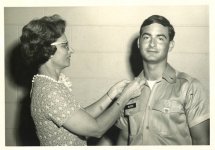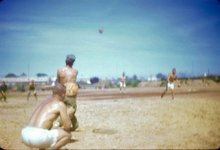The below article is by the editor of the Vietnam 67 Section, Clay Risen.
***
My Vietnam
I was born in 1976, a year after the fall of Saigon and three years after the last American combat troops withdrew from Vietnam. I have no memory of the war — but it affected me profoundly.
Above all, I’m the son of a veteran. My father did R.O.T.C. at Georgia Tech, and so he knew, early on, that he would probably get shipped off after graduation. He got lucky and served at a munitions factory in Illinois, but many of his friends went to Vietnam. Some didn’t come back. My dad talked a lot about his service, but he didn’t talk about those friends very much. The men I grew up around — his friends, my teachers, my pastors — didn’t talk about the war either. They just went about their lives, building careers and families, usually with some success.
This was not the way veterans were portrayed on TV or in the movies. There they were broken, or insane; they were baby killers or the victims of gross political mistakes. I’m a child of the 1980s, so I grew up watching movies like “First Blood” and “Jacob’s Ladder,” and TV shows like “Tour of Duty” and “China Beach.” Though thoughtful and well-made, these depictions nevertheless sensationalized the Vietnam war experience, taking its extremes as norms and refashioning veterans as interchangeable stereotypes.
Veterans were marginalized and sensationalized, all at once. It was inevitable: With Reagan’s military buildup and war with the Soviet Union a distinct possibility, America needed to reset its martial expectations. The 1980s gave us a new, romanticized vision of war. My friends and I played with G.I. Joe, toys that glamorized an alternate-universe Army that had never grappled with the ugly realities of war that our fathers knew. We read novels by writers like Tom Clancy, who used the prospects of a global conflict with the Russians to imagine a world in which Vietnam was somehow the exception. Through all this we were taught that, should another war call us to service, as our fathers and grandfathers had been, we could expect a conflict more like Gettysburg or D-Day than Khe Sanh or the hill fights.
In all this, it was the absence of talking about Vietnam — real talk about the real war — that shaped my generation more than any single fact we learned about it. I was too young for the first Iraq War and too old, by a hair, for the second, but I know more than a few people who, like me, had grown up with G.I. Joe and Ronald Reagan and eagerly rushed off to a far-away country, ready to kill, trusting that their political leaders knew what they were doing.
Those of us who have never been in combat will never know what it is like. That can be an invitation to despair or ignorance. But it can also be a path to empathy. We can read the great veteran writers — Karl Marlantes, Tim O’Brien, Philip Caputo. And we can read nonfiction accounts by veterans, several of whom we have featured in this series, including the Marine veteran Michael B. Taft this past weekend.
It is something we, as citizens, desperately need to do. War is sometimes necessary. But we must be cleareyed about why, and ask whether those in charge are being honest. We will never be able to do that if we continue to treat those who have served as mental or charity cases, worthy of our derision or our pity, but not our understanding. Clay Risen
 The author’s father, Marvin Risen, receiving his commission as a second lieutenant after completing reserve officer training in 1966. His mother is attaching his pin to his lapel.
The author’s father, Marvin Risen, receiving his commission as a second lieutenant after completing reserve officer training in 1966. His mother is attaching his pin to his lapel. 


